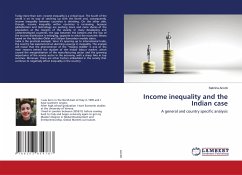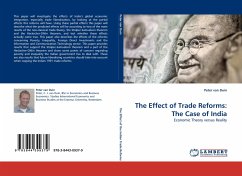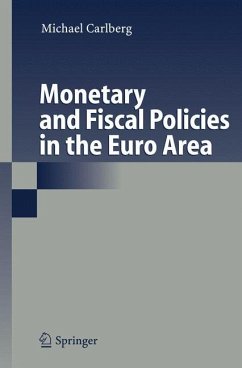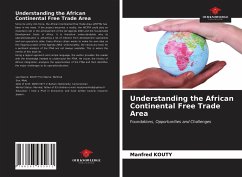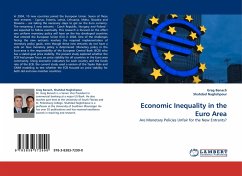
Economic Inequality in the Euro Area
Are Monetary Policies Unfair for the New Entrants?
Versandkostenfrei!
Versandfertig in 6-10 Tagen
32,99 €
inkl. MwSt.

PAYBACK Punkte
16 °P sammeln!
In 2004, 10 new countries joined the European Union. Seven of these new entrants - Cyprus, Estonia, Latvia, Lithuania, Malta, Slovakia and Slovenia are taking the necessary steps to get on the Euro currency. The remaining 3 new entrants - Czech Republic, Hungary and Poland - are expected to follow eventually. This research is focused on the affect one uniform monetary policy will have on the less developed countries that entered the European Union (EU) in 2004. One of the challenges facing the new entrants involves the required implementation of monetary policy goals, even though these new ent...
In 2004, 10 new countries joined the European Union. Seven of these new entrants - Cyprus, Estonia, Latvia, Lithuania, Malta, Slovakia and Slovenia are taking the necessary steps to get on the Euro currency. The remaining 3 new entrants - Czech Republic, Hungary and Poland - are expected to follow eventually. This research is focused on the affect one uniform monetary policy will have on the less developed countries that entered the European Union (EU) in 2004. One of the challenges facing the new entrants involves the required implementation of monetary policy goals, even though these new entrants do not have a vote on how monetary policy is determined. Monetary policy in the Euro-area is the responsibility of the European Central Bank (ECB) who has a stated goal price stability. The present study explored whether the ECB had proper focus on price stability for all countries in the Euro-area community. Using economic indicators for each country and the funds rate of the ECB, thecurrent study used a version of the Taylor Rule and GMM modeling to test whether the ECB focused on price stability for both old and new member countries.






